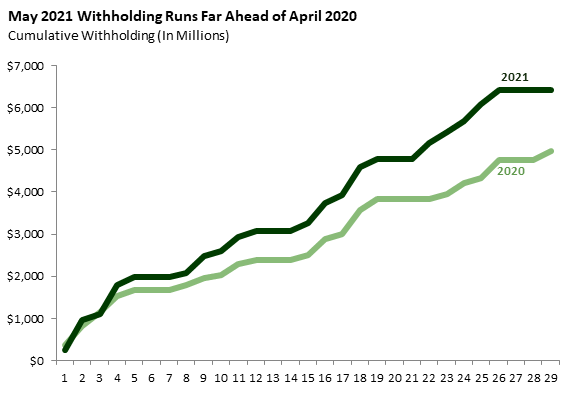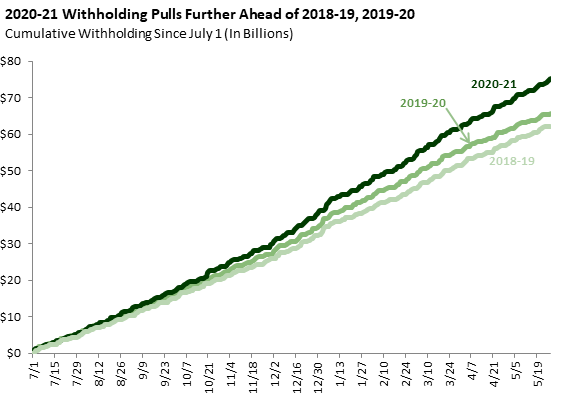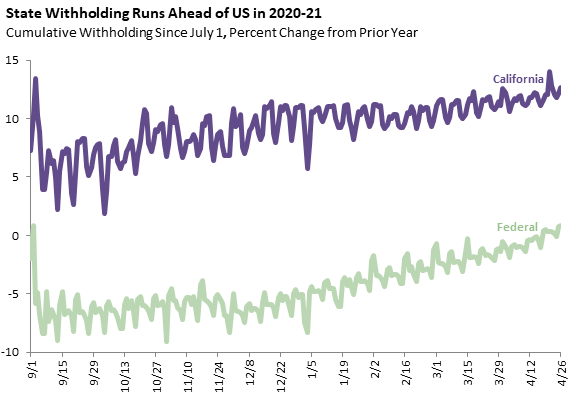Bottom Line: California income tax withholding collections in May were 29.4 percent above May 2020. Total withholding to date in fiscal 2020-21 is 12.2 percent above the same period in 2019-20.
California employers are required to make regular income tax withholding payments for their employees, which can provide a real-time indication of the direction and magnitude of the aggregate change in the employers’ payrolls. Most withholding payments are for employees’ wages and salaries, but withholding is also due on bonuses and stock options received by employees. We caution against giving too much weight to withholding numbers in any given month, as they often include unpredictable one-time payments (say, for taxes on stock options associated with initial public offerings). Nonetheless, monthly withholding payments provide a useful near-real-time indicator of the state’s evolving economic situation.
The first graph shows that withholding payments in May 2021 were up 29.4 percent from May 2020, when the state was under severe restrictions due to the COVID-19 pandemic. This month has also seen the initial public offerings of 13 California companies, the same number as in April, but their collective valuations were far smaller: roughly $24 billion compared to $148.6 billion in April, when Coinbase ($86.0 billion) and AppLovin ($28.6 billion) went public. Companies with valuations over $1 billion that went public in May include Procore, FIGS, Plus, ZipRecruiter, and the Honest Company. In contrast, the only California company to go public in May 2020 was Oric Pharmaceuticals with an initial valuation of $459 million.
The second graph compares total withholding collections to date in fiscal year 2020-21 (which started on July 1, 2020) to the two previous years. As of May 28, cumulative collections were $9.6 billion (14.6 percent) ahead of 2019-20 and $13.1 billion (21.1 percent) ahead of 2018-19.
The final graph compares the state’s year over year percent change in cumulative withholding in 2020-21 to the nation’s withholding from the federal income tax, and shows that state collections have maintained a faster pace for months. While California’s economy has been hurt at least as badly by the recession as the national economy has, its withholding collections have likely held up better because its income tax falls more heavily on the higher-paid workers who have experienced fewer employment losses than their lower-paid counterparts.



